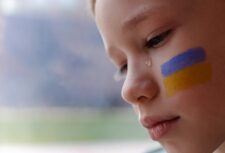Disclaimer: This article is more than 14 years old, and may not include the most up-to-date information or statistics. Please verify information with more recent sources as needed, and if you have any questions contact our Press Office.
16 April 2010
A new legal guide by Anti-Slavery International and Eaves Poppy Project has warned that victims of trafficking for forced prostitution and forced labour are vulnerable to being re-trafficked because of a failure of the criminal justice system to provide financial compensation for their ordeal.
International and domestic law recognises the right of trafficked people to pursue compensation for their suffering but it remains an exception rather than a rule for people trafficked to the UK. Anti-Slavery International and Eaves Poppy Project are calling on lawyers to pursue compensation in UK courts and the European Court of Human Rights and not be deterred by the lack of case law.
Trafficked people are subjected to emotional trauma, physical suffering and unpaid wages. Many are raped, beaten, threatened with physical violence and deportation and forced to work long hours.
In April 2009 the UK adopted the Council of Europe Convention on Action against Trafficking in Human Beings. The Convention ensures standards of protection for the victims of trafficking, including the granting of a 45-day reflection period and residence permits. However, this is not enough time for the victims to recover compensation for their crime.
While trafficking gangs make millions of pounds, the victims of trafficking are left financially insecure without compensation, which leaves them vulnerable to becoming re-trafficked.
Compensation acknowledges the victim’s pain and suffering and constitutes a first step towards overcoming the trauma inflicted and abuses suffered by the trafficked person as well as helping them to rebuild their lives.
If the compensation was paid out of the confiscated earnings of the traffickers then it would constitute further punishment to the criminal and would help deter those who currently see trafficking as a high profit but low risk crime.
Klara Skrivankova, Trafficking Programme Co-ordinator, Anti-Slavery International, said: “The current reality is that the criminal justice system delivers little justice to the victim. Trafficked people are often forgotten once the criminal proceeding against traffickers ends and if the British Government is really committed to protecting the victims of trafficking from going through the horrendous ordeal again then they must mainstream compensation into its anti-trafficking policy.”
Abigail Stepnitz, National Coordinator, Eaves POPPY Project, said: “The guide will assist legal professionals and others working with trafficked persons to think about compensation as an integral part of both the recovery process and the criminal justice response to trafficking. We hope it will also help trafficked persons to reclaim their independence and autonomy, thereby reducing their vulnerability to further exploitation.”
The guide aims to be a starting point to help lawyers take a creative and comprehensive approach in evaluating the legal remedies available to trafficking victims. The guide also includes two practical case studies and recommendations drawn from the experience of several practitioners.





